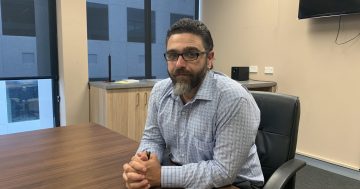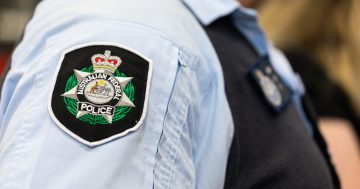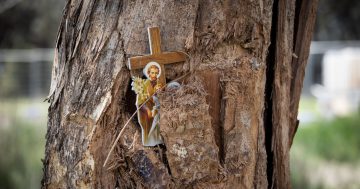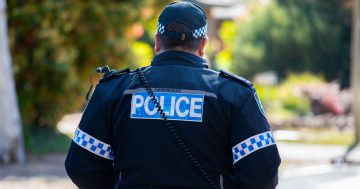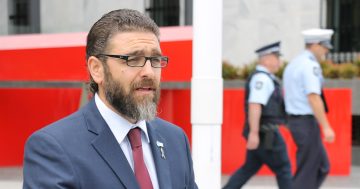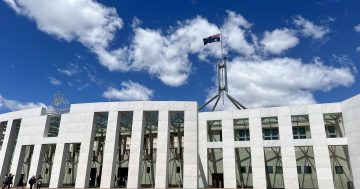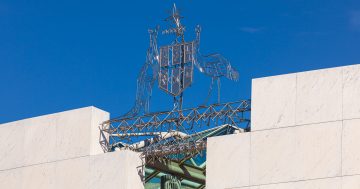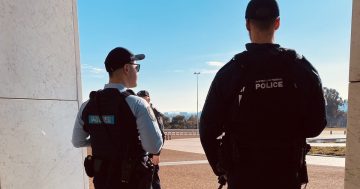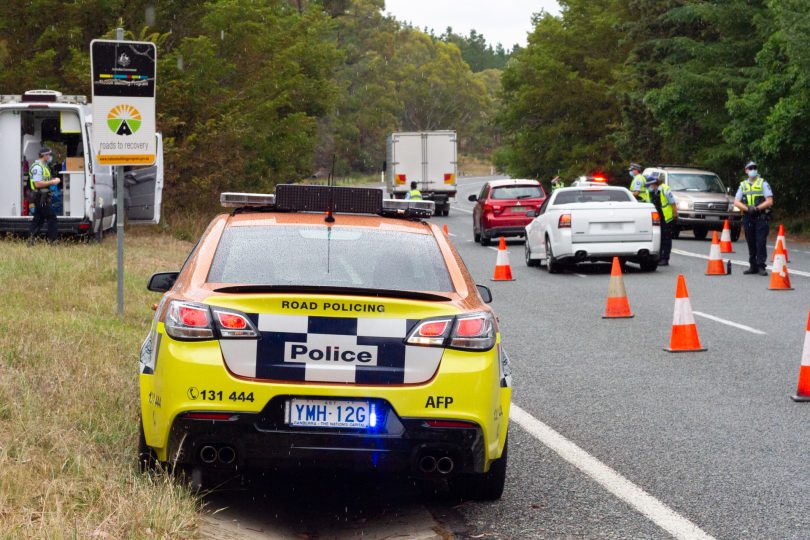
During this lockdown, policing resources have been directed towards border compliance and other COVID activities. Photo: Dominic Giannini.
Policing resources were diverted away from organised crime operations towards compliance activities during the Territory’s recent nine-week lockdown, according to the police association.
This has meant major investigations have stalled as detectives who would normally undertake them have been transferred into other teams to complete door-knocking and border compliance checks.
Speaking at a Legislative Assembly hearing earlier this month, Australian Federal Police Association president Alex Caruana said resources had first been stretched due to the bushfires, and the pandemic only compounded this.
He told committee members that policing resources had been stretched “not only physically, but mentally as well”.
For the first time, Mr Caruana acknowledged that some members had to be stood down after being identified as close or casual contacts and needing to go into quarantine.
He wouldn’t say how many members were sidelined and ACT Policing has been reluctant to release this data for “operational reasons”.
Specifically, Mr Caruana said it was members from teams that tackle fraud, commercial and organised crime, as well as other crime-targeting teams who had been stood down to prop up the “business as usual” teams for COVID compliance.
“It’s the investigations which take a longer amount of time which are being stood down,” he explained.
While Mr Caruana said the AFP was supportive of the need for COVID compliance checks and activities, he acknowledged they didn’t have the workforce capacity to support both.
He also spoke about issues with cross-jurisdictional jobs – specifically with NSW Police – where resolutions could not occur, simply because “they didn’t have the police numbers to do it”.
It’s estimated around 60 members were reshuffled into frontline or COVID-compliance policing.
He said police have been at the frontline to keep the community safe with few complaints, but it was starting to impact officers’ work-life balance.
The AFPA is calling on the federal government to introduce a Blue Card that would work like the Defence White Card and cover work-related health issues.
Similarly, there are calls to introduce presumptive legislation at a federal level so that if a police officer has a mental illness, their treatment is covered.
However, Mr Caruana believes the first issue is getting more bodies on the ground so that the mental health of officers is less stretched in the first place.
The AFPA already believes the ACT is under-funded or under-staffed by around 150 members.
According to Mr Caruana, the ACT contains some of the fastest-growing jurisdictions in the country but has the lowest police density.
While not all crime rates have gone up during the pandemic, some have, such as car theft and domestic violence.
“What we need to look at as well are the calls for attendance which have increased significantly,” Mr Caruana said.
Border compliance activities which ACT Policing undertook in conjunction with the Defence Force came to an end as the Territory’s hard lockdown ended last week, ACT Acting Chief Police Officer Peter Crozier said on Thursday last week.
He noted that ACT Policing will begin to focus on road compliance around schools, but checks on people in home and hotel quarantine would continue.












